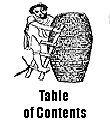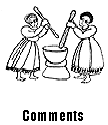
 by: Asfawossen Asrat I bet the only place in the world where a limousine and a donkey get driven side by side is Addis. I heard the Addis municipality has plans to ban donkey driving in the streets of Addis during rush hour to ease traffic! It is distressing. Addis Ababa will no longer be unique. But Addis Ababans will always be. And upper class Addis Ababans? Well, they are the center of gravity. I have fond memories of my years at the Arat Kilo Campus of AAU. There were in-house rules and laws everyone accepted. The student population was classified into two big categories: Addis Ababans and Kiflehageran. Every body knew his/her place. No complex, no hustle... no bustle... we were in real love. I really mean it, in real love with each other save for the terebs against each other. I do not know (or I don't want to imagine) what the Addis Ababans called us, but we had a few names for them. Most Addis Ababans were off-campus students, i.e., they had no dormitories. They stayed at home and came to campus only for classes; at their will, if they were from San Jo, Nazareth School and the like; but obliged if they were from Shimelis Habte, Addis Ketema and the like. Students from San Jo and Nazareth... Ho Ho... Min beweTachew'ina...stay in encampments where everybody sleeps together? Not unless it was Abadir at SoderE. They christened our dormitories "camps." If only they knew what they missed! We lived four to eight in each dorm. At the end of our studies we would have a second degree in Ethiopian Culture--a real, meaningful degree irrespective of our major fields of study. We used to call them ye bEt Lijoch... and no, it was not prerogative nor abusive. It was simple classification. But our favourite nickname for Addis Ababan freshmen was DAF. Not because they were huge... you know, as in DAF truck or the DAF city bus! It is an acronym for the course grades D, A and F... "D in Math; A in English; and F in Physics." DAF was almost a universal truth for Addis Ababan freshman, especially female freshman. They had a monopoly for A's in English, save for a few exceptions from both groups. A Kiflehageran who scored an A in English was considered to be really brilliant by his pals. It made sense. We started elementary school with "Ha, Hu, Hi, ....;" they started kindergarten with "A, B, C, ...." We grew up rehearsing "Kebede Besso Bela" they grew up rehearsing "Mike eats his dessert." We read Mammo Widneh and Berhanu Zerihun; they, Danielle Steel and Robert Ludlum... Mahmoud or Alemayehu; versus Celine Dion or Tracy Chapman (Oh...how much I love this girl!). But our differences were our beauty. Neither was wrong or right, good or bad in its own right. We left the English for them "Be beQaN"; they left the Amharic... and the math... and the physics, and the history... and... . Our differences were our beauty. But even within the Addis Ababans, our "gra gon aTintochachin," there were different classifications: those who dined at our "Cafés" (the popular name for student restaurants where you are obliged to eat for free!), and those who never crossed the gates to our nasty cafés. A "weTahu weTahu" bai ye-kiflehager goremsa who dared to try his chance to date an Addis Ababan girl should first know her category - her class. If she were a café diner, he might have a chance to alemun lemeQCHet, with a lot of help and blessing from our neighbouring SilassEwoch, of course. But if she were a non-café brand, he better concentrate on his studies. We learnt our lessons from our buddies at Sidist Kilo, where the number of non-café brands was proportionally higher- for obvious reasons, of course... no mathematics nor physics up there. The story is that one defar kiflehageran asked, indiaw milasun sat blot, a non-café molQaQit for a date. Naturally, the girl was so traumatised that she immediately burst into tears. Her friend asked the reason of her grief trying to comfort her. Her response was clear and to the point: "Café yemibela lij lawTash alegN...!" As they say "negerin neger yanesawal," our cafés sometimes served as theatrical venues. A case in point: there was this freshman guy who had "moferna Qenberun seQlo yemeTa" according to Addis Ababans, who came to dine ("café liseQl" as we used to say) for the first time at our famous café. The menu for that day, which had been as constant as "pi" for ages, was changed to Pasta. The Addis Ababans cheered. The Kiflehageran grieved. He was strongly advised by his folks not to touch any thing hymanot yemiyaferss! When he was served that metre long and centimetre wide ye-Qaaliti Pasta, his is reaction was natural: "innE til albelam!" It was too much for him. He had just got over reciting, "meharene Kristos" twelve times after having seen TV for the first time. "Are we supposed to go to school with these kind of people?" murmured the disappointed Addis Ababans. Fortunately, when we could not control our longings for a decent meal, we retreated to our famous Hotel d'Afrique. No, not the one at Amistegna! Ours was d'Afrique No. 2 at the foot of the hovering Parlama HinSa. It was an anonymous yemender migib bEt and we coined it d'Afrique No. 2. To us it seemed exotic. At our little d'Afrique, where you could touch the window at the opposite wall as soon as you stepped in the door, we could eat like lords. Here comes the be zeit ebid yalech shiro for 1 birr and 50 cents. There were some guys who were so addicted to that shiro that they started showing their ID cards there thinking that they were at the café. When the menu at the café was "keyaQTaCHaw," a sort of soup where every thing known to man was thrown into a pot, we bought injera from d'Afrique and saved our "chloroquine pills," as we used to call the dabo at the café, for the listros who preferred those pills to a simuni to shine our shoes (bartering has and will always be practised at the gates of the Arat Kilo campus in the 20th century!). So our d'Afrique served as a multi-function restaurant-department store. In the mean time, upper class Addis Ababan fellows were treating themselves to a piece of cake and makiato for 3 birr at the nearby pastries. That was our "aradanet b'aQuaraCH!" We paid less, got more! There was this other freshman guy who was in love, in real love with an Addis Ababan co-ed freshman. Fortunately for him she was a café brand. At least he had access to her eyes. He was at the verge of abandoning his courses when his pals informed the campus psychiatrist. Our lady was told about the situation the guy was in. Fortunately, she was co-operative. With the blessing of the campus administration, the iron curtain between the male and female dorms was lifted so that our guy could be hosted in her dorm in hopes of placating his love. The date arrived and our lady QeTEma gozguza, buna aflita, hosted our pal. Things went pretty smoothly until our lady started acting too fast for our guy to cope with. Wanting to add romance to their date and to reassure him before his departure, she endeavored to kiss him on his lips! No, he did not faint, but after repeatedly mamateb-ing, phirrrrrr, he was sprinting out of the stunned woman's dorm. Was he a fara? Or do Addis Ababans not understand real love? Things became easier and more convivial when we began our second year. We started understanding each other and our differences, and how neither group was perfect on its own. The fact that we were treated equally by our instructors helped. We had equal footing in lecture halls, save for English classes. We studied together, we conferred together, we panicked or got excited together during exams, we cheered or got anguished together when results were posted. The class differences became more financial than moral and psychological. Our campus served as a melting pot for those differences. It was the place where you could appreciate "differences!" It was the place where Addis Ababan molQaQoCH started to understand for the first time that they were part and parcel of the larger Ethiopian situation. However, our preference in geography remained unchanged throughout the years. An Addis Ababan upper class always had a greater ease at pronouncing LA and DC rather than Debre Sina or Bahir Dar. And eventually we started to talk like them... "I phoned my mother in D S!" or "My folks sent me besso-na-mar from BD!" But I confess that I like Addis and upper class Addis Ababans with all my heart. I like their enthusiasm, their vigour, their simplicity - Oops! I've run out of my adjectives. But what I like most is their famous motto: "We are the future of the country!" I heard this famous motto a long, long time ago but I am always wondering why our country's future is always pointing to the past! I may still buy the Addis Ababans' motto. Yes, you are the future of the country! I mean it! I am convinced that it does not take a million to lead a country in the right direction. No more "What's up?" stuff. Nothing is "Up!" Things are on the "Down!" back home. |

|

|

|

|

|
| © Copyright SELEDA Ethiopia, March 2001. All Rights Reserved. |